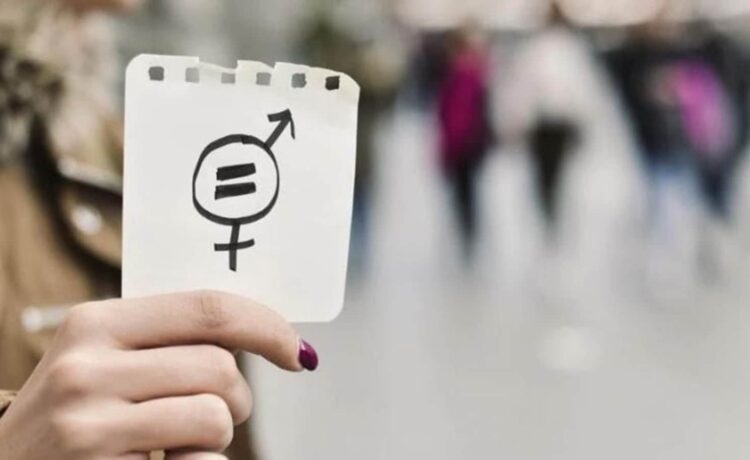According to the World GDP Ranking 2023, India has surpassed the United Kingdom and France to become the world’s fifth-largest economy. This rapid expansion can be attributed to India’s strong domestic consumption, growing service sector, and rising foreign direct investment. However, despite the fact that India’s economy has risen faster in recent years, there are still significant challenges that need to be addressed. Among various obstacles, addressing the gender gap emerged as a key concern. In truth, women in India have faced several restrictions and discrimination since traditional times, limiting their access to education, career prospects, and decision-making power. However, there has been an increasing acknowledgment of the need for gender equality in recent years, and attempts have been undertaken to empower women and bridge the gap.

Among various initiatives, “financial inclusion” has emerged as an important tool for empowering women in India. Financial inclusion attempts to give women access to financial services like banking and credit, which can help them become financially independent. In addition, efforts like skill development programmes and entrepreneurship support have been implemented to increase women’s economic participation and encourage their active participation in the labour sector. These measures not only help to close the gender gap, but they also have the ability to boost the country’s economic growth and development.
Here, let’s delve into the various ways in which financial inclusion will benefit women in India, bridging the gender gap:
· Designing gender-sensitive financial products: Financial institutions are moving in the direction of inclusivity by creating products that speak to women’s particular requirements. Simply put, by learning about the particular needs and difficulties that women have, financial institutions can provide goods and services that are tailored to meet their needs. To equip women with the information and abilities to make wise financial decisions, this could entail providing flexible repayment options, reduced interest rates, and specialised financial education programmes. Such initiatives not only enhance women’s access to credit but also promote their financial independence and overall well-being.
· Promotion of financial literacy: In the present day, financial literacy has surfaced as a critical aspect. This is where, among various solutions, skill development programmes surfaced as a critical step in improving levels of financial literacy among the female population. Training them in budgeting, saving, and investing will put them in a better financial position where they can handle their finances effectively. Besides giving women the necessary knowledge to make wise financial decisions, these programmes promote women’s general economic growth and autonomy. In addition, by giving women these skills, they are more able to understand the complexities of the finance sector and take advantage of those opportunities that may enhance their living standards.
· Addressing legal and regulatory barriers: Governments and policymakers are playing a pivotal role in dismantling the barriers that impede women’s financial inclusion. They are putting policies and regulations in place to ensure that women have equal access to financial services and products. Reforming the legal system and abolition of discriminatory practices surfaced as essential steps in creating an atmosphere that supports equal financial participation.
Not only are these advancements empowering women, but they are also making a significant economic contribution to the country.
· Empowering women entrepreneurs: Entrepreneurship, in today’s modern era, has surfaced as a powerful avenue for economic empowerment. It allows women to develop their own businesses, make money, and become financially self-sufficient. Recognising this, financial institutions and support organisations are providing women entrepreneurs with specific assistance. Collateral-free loans made possible by joint liability companies and self-help organisations are assisting in breaking down traditional barriers and promoting the growth of women-led businesses.
· Cultural shift within financial institutions: In order to support female entrepreneurs, financial institutions are recognising the need for a cultural shift. One way they do this is by promoting digital education, which can help women gain the skills and knowledge they need to navigate the financial world. Financial institutions are empowering women to take advantage of online banking, e-commerce, and other digital opportunities that can help their businesses grow by providing resources and training on digital tools and platforms. Furthermore, concepts like kiosk banking fill gaps in places with limited financial access while simultaneously empowering women by letting them manage banking facilities.
· Expanding access to the digital revolution: There is no denying the fact that today’s digital revolution has emerged as a game-changer in promoting financial inclusion, particularly for women in remote areas. The digital revolution has opened up new opportunities for women to access financial services and participate in the economy. Through mobile banking and online platforms, women who live in rural areas can now effortlessly access credit, make transactions, and manage their finances. Additionally, the digital revolution has also made it possible for financial institutions to reach a larger client base and offer services that are specifically designed to fulfill the needs of women.
Inclusive finance emerges not just as a strategy, but as a necessity for sustainable growth. Achieving equitable access to financial services for women can enable nations to leverage the full potential of their female workforce and propel economic growth. Thus, by adopting these key approaches, the nation can move closer to a financial landscape that is truly inclusive, where every woman has the opportunity to shape her economic destiny.
This article is authored by Ajeet Kumar Singh, MD, CEO and co-founder, SAVE Solutions Pvt. Ltd.
















